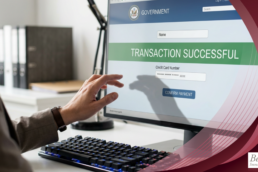On August 5, 2025, the U.S. Department of State quietly dropped a policy change that could impact thousands of travelers: a new 12-month Visa Bond Pilot Program that goes into effect August 20, 2025, and runs through August 5, 2026. While it may sound like just another bureaucratic update, make no mistake, this one’s a game-changer, particularly for business and tourist visa applicants from certain countries.
What Does The New Visa Bond Pilot Mean?
This pilot program allows consular officers to require a refundable bond, either $5,000, $10,000, or $15,000, as a condition for receiving a B-1 (business) or B-2 (tourism) visa. These bonds are aimed at applicants from countries flagged for high visa overstay rates, weak identity screening systems, or controversial citizenship-by-investment (CBI) programs.
Let’s break down the biggest points within this pilot:
- Visa bonds apply only to B-1/B-2 visa applicants from designated countries with overstay concerns or vetting issues.
- Visa Waiver Program countries are exempt.
- Bond amounts will be set by consular officers based on perceived risk and applicant background.
- Most visas issued under this program will be single-entry, valid for just three months, with U.S. Customs and Border Protection typically limiting admission to 30 days.
- Visa validity, travel ports, and entry duration will all be strictly controlled.
Why This Matters
According to the State Department, the goal of this pilot is to deter overstays and test the feasibility of a broader visa bond program. But anyone paying attention to recent immigration trends knows the bigger picture: the U.S. is tightening the legal immigration system on purpose.
This policy comes at a time when:
- U.S. consulates are already overloaded and understaffed.
- In-person interviews are now mandatory for almost all visa applicants (including children and the elderly).
- Diversity Visa Lottery winners must now hold valid passports at the time of entry.
Rather than streamlining lawful travel, these changes raise more barriers, which means added time, expense, and complications to a process that’s already daunting.
Who Is Affected By the Visa Bond Pilot?
The visa bond program targets nationals from countries with:
- High visa overstay rates (based on DHS data from FY 2023)
- Deficient identity screening protocols
- Citizenship-by-Investment programs with no residency requirements
The list of affected countries was published on August 5, 2025, and is supposed to be updated throughout the year.
How Much Will You Need to Pay?
The bond amount will depend on your profile:
- $5,000 – For applicants with limited financial resources
- $10,000 – The standard/default amount
- $15,000 – For those with extensive U.S. ties or higher overstay risk
Applicants will have 30 days after their interview to post the bond through the U.S. Treasury’s Pay.Gov site using Form I-352. If it is not paid on time, the visa will be denied under INA Section 221(g).
Visa Restrictions to Expect
Visas issued under this program will include several limitations:
- Single-entry only, and valid only for three months
- Entry and exit can only happen at pre-selected U.S. airports
- Admission periods will be limited to 30 days
- Visa will be marked to show bond requirement
This means travelers must plan their trips very carefully, especially if they are attending events, conducting business, or visiting family.
Will You Get Your Bond Back?
Yes…but only if you comply. That means:
- Exiting the U.S. on time through the designated airport
- Not overstaying your visa
- Not violating your status
- Not filing untimely applications for extension or change of status
If you meet all requirements, you’ll receive Form I-391 and your bond amount will be refunded.
If not? The bond is forfeited, and you could be flagged for future inadmissibility. Lose, lose.
Frequently Asked Questions
Q: Which visa categories does this affect?
A: Only B-1/B-2 visitor visas. Student (F/M), exchange (J), and employment-based visas are excluded from the pilot.
Q: Can I request a waiver for the bond?
A: There’s no general waiver process right now, but consular officers can recommend waivers for U.S. government employees or urgent humanitarian cases. Final approval happens from the Deputy Assistant Secretary for Visa Services.
Q: Will I get my bond refunded?
A: Yes, if you comply with visa terms. That includes departing on time, or properly and legally extending or changing status. DHS monitors departure through ADIS, and compliant applicants receive Form I-391.
Timeline for Visa Pilot Program
- August 5, 2025: Country list and selected airports announced
- August 20, 2025: Bond program takes effect
- August 5, 2026: Program ends (bonds remain in effect until resolved)
What Should You Do Now?
Use the following tips to prepare, whether you’re planning a business trip, a family visit, or supporting someone abroad:
- Monitor the country list closely via Travel.State.Gov or subscribe to updates.
- Budget accordingly. If you or your family member are from an affected country, prepare for the possibility of a $5,000–$15,000 bond.
- Plan your itinerary carefully. These visas may have shorter stay times and fewer flexibilities than standard visas.
- Consult an experienced immigration attorney. Especially if you’re unsure whether your application will trigger this new requirement.
How Berardi Immigration Law Can Help
This new visa bond policy is more than just a financial hurdle, it’s another signal that U.S. immigration is becoming more complex and selective. But you don’t have to face it alone! At Berardi Immigration Law, we’ve spent decades helping individuals, families, and businesses successfully navigate rapidly changing U.S. immigration policies. Our team offers straightforward legal advice, proactive planning, and support every step of the way.
Whether you’re applying for a visa, responding to a bond requirement, or exploring citizenship or permanent residency, we’re here to help you build a strategy that works. Book a consultation today and let’s make a clear, confident plan for your U.S. immigration journey.
Immigration law is always changing, but your dream of coming to the U.S. doesn’t have to. Let’s get you there, the right way!
Ready to have Berardi on your side?
Whether you’re a business looking to hire or a professional hoping to relocate, immigration law can be complicated. But you don’t have to do it alone. Put our experience to work for you.



